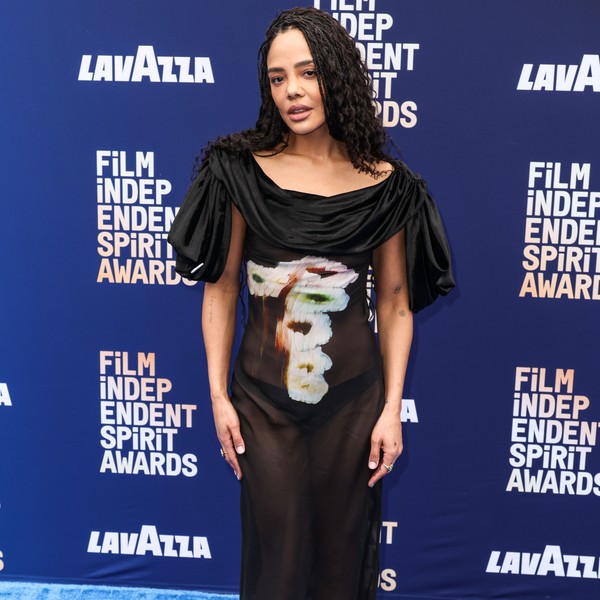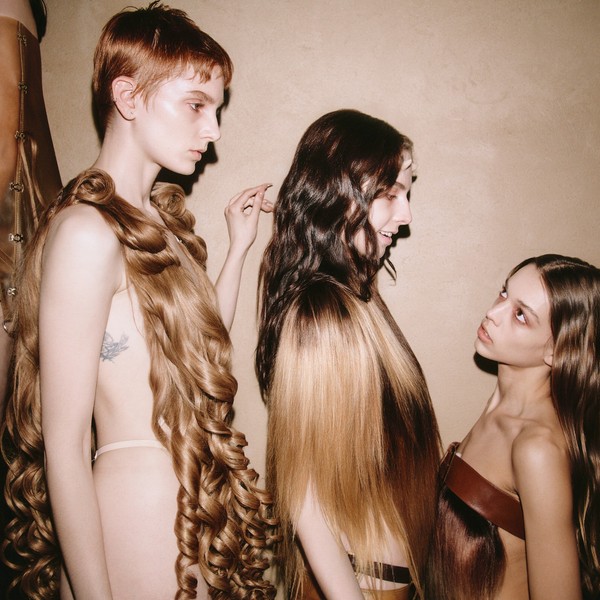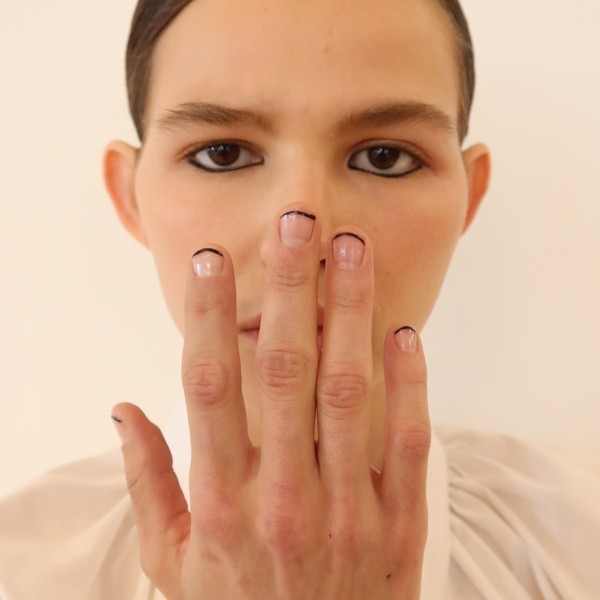Jenna Lyons on ‘Skin Botox,’ Red Lipstick, and Watching Herself on TV
Plus, a few of her favorite beauty products.
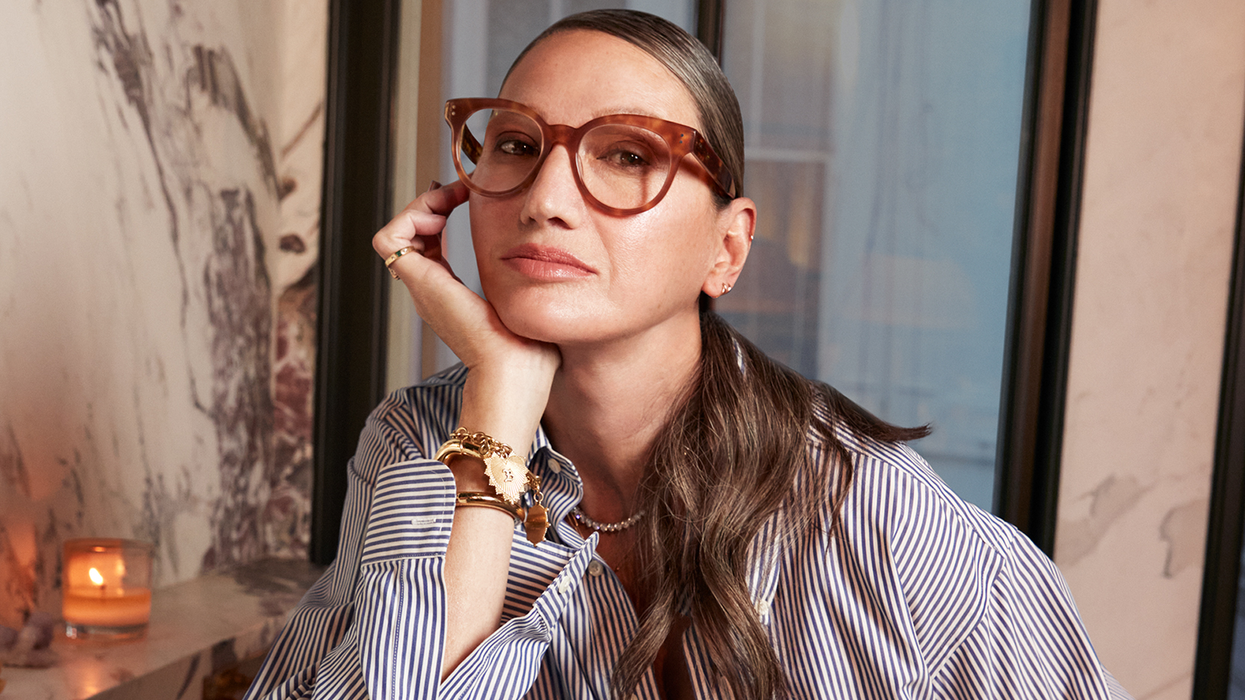
Welcome to On Beauty, a series where we take a deep dive into one person's relationship with beauty, how that relationship has transformed over the years, and how they experience being seen. This week, we're talking to Jenna Lyons. In 2017, after 27 years at J.Crew, where she started as an assistant menswear designer and worked her way up to president of J. Crew Group and executive creative director, Lyons decided to leave. Since parting ways with the retailer, Lyons has launched LoveSeen, a false eyelashes brand; joined a brand agency spinout of investment firm Blackstone as executive creative director; starred in season fourteen of the reality series The Real Housewives of New York City; and, most recently, took on the job as editor-in-chief at large here at Coveteur. Ahead, we talk to Lyons about watching herself on television, why she’s not really into injectables, her favorite beauty products, and more.
This article was written prior to Jenna joining Coveteur as Editor-in-Chief at large.
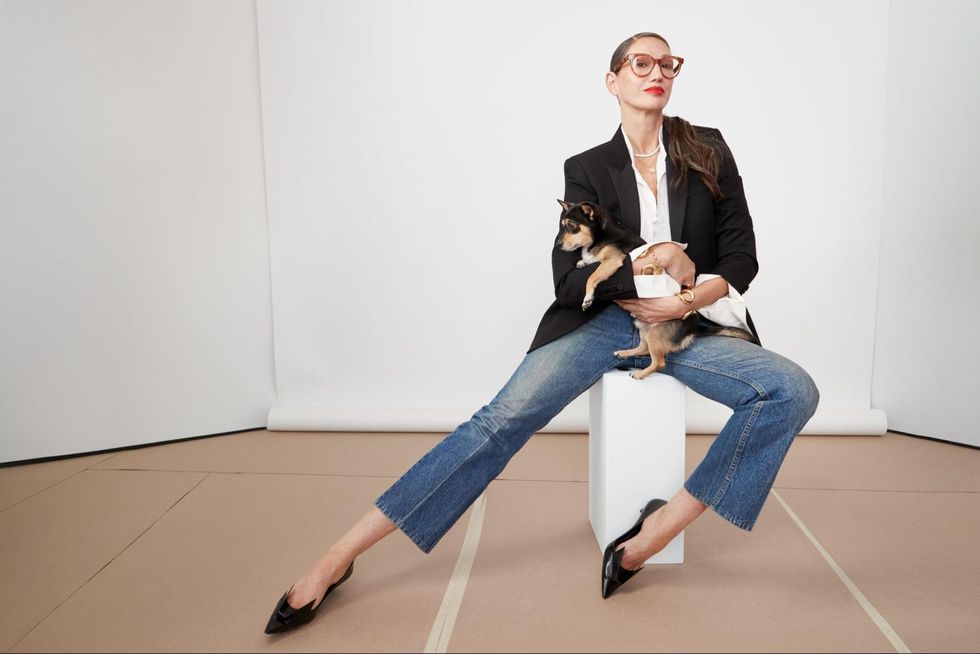
Noble Panacea
Coveteur: What was middle school for you?
Jenna Lyons: “Middle school, oh god. Brutal. I was teased mercilessly; people were not nice, so it was not fun. What brought you to [bring up] middle school?”
For a lot of people, I feel like middle school was an important time for discovering interests that are still with them today.
JL: “That's a really interesting point. I was in seventh grade when I really found out about fashion. I think you’re right—you start to get a clearer sense of what you’re drawn to. Not everyone does, but I think those who do are lucky.”
Did you have an interest in beauty at that age?
JL: “When I was younger, there was no access to anything. The only makeup I knew was drugstore makeup. Department store makeup was way too expensive. I did not look great. I had conical teeth. I had bald spots on my head, so my hair was kind of crazy. I just felt very outside of that world. There was also no real way to get in it. There's no one to walk you through it in a drugstore. And I couldn't afford—and was also just too intimidated—to go into the fancy department stores.
Beauty to me only existed in a very rarefied and narrow view, which was what I saw in the magazines. It was blonde hair, blue eyes, big boobs, a Baywatch kind of vibe. It was Pamela Anderson at the time and Claudia Schiffer. And I was clearly not that.
My girlfriend shot Linda Evangelista yesterday, and she was in the studio downstairs. It was very emotional—I remember being so enamored by her because she didn't look like everybody else. She had that short pixie-cut hair. She was kind of boyish; she was still a very beautiful white girl, but she was not what I had grown up looking at. Everyone in my sphere looked the same, and that felt really exclusionary, which I think we can all understand.”
Did growing up in LA amplify that feeling of alienation?
JL: “For sure. Those girls, they would come out of the water in their bathing suits and beach-y hair and just looked beautiful. I wanted so badly to look like them, but I just didn't. And I knew I couldn't either. It wasn't like I was even going to try. So, I retreated and dyed my hair blue and purple and all these different colors. I thought, ‘Okay, if I can't be that, I'll be something else.’ Did you feel beautiful when you were growing up or in middle school?”
No, definitely not. It’s interesting, I feel like when I talk to my friends about weight, we all had a specific moment when we realized, ‘Oh, I should be dieting,’ or ‘I should be skinnier.’ I remember I was in middle school and I was in the bathroom and there were these three girls looking at their reflections in the mirror and saying to one another, ‘Oh my gosh, I'm so fat.’ And I remember thinking, ‘Oh, if you guys think you're fat, then what am I?’ That was a significant shift in how I saw myself. Would you say you had a similar experience?
JL: “Yes, but it took me a lot longer because I then chose to go into fashion. So I put myself in an industry where I went from being far away from the sun to being on top of the sun. I struggled for a long time. I think you're right, that experience when you all of a sudden clock that everyone's looking at themselves and then that makes you ask, ‘How do they see me?’
The experience of beauty can be inclusive in ways the idealized image isn’t. I think it is more agnostic in terms of who can partake and how you use it, which I think is great. I do think it can feel really inclusionary.”
I feel like the red lip has become your signature look. Would you say that’s true?
JL: “It has become much more so, and I think it's gotten amplified recently because I've been doing a lot of press and TV. Right after I had my son, I was so much busier and didn’t have the same [amount of] time to put makeup on. I would put on eye makeup, and I would just look tired. I distinctly remember one day not having a ton of time—I just threw on a red lip and I thought, ‘Oh, I look a little brighter. Maybe this is my thing.’ And so it became my default whenever I needed a little lift. It also became the thing that set me apart; I know so few people who wear a red lip. It’s interesting, a lot of men don’t like it, which is one of the reasons I didn’t do it when I was younger. Now that I’m not concerned about the lens of a man, I don’t care. But my girlfriend doesn’t love it either.”
Why do you think the red lip can be jarring to some people?
JL: “I think it sort of says, ‘You can’t kiss me.’ It’s a barrier between you and the other person. It’s interesting—it acts as a boundary.”
I’m curious—how has it been watching yourself on TV?
JL: “You have to watch everyone else’s scenes because you have no idea what they’ve said in their confessional, so it keeps you in the know. But most of the time, I fast-forward through my parts because it’s very hard to watch.”
Harder than listening to your own voice?
JL: “Yes, because I think listening to your own voice doesn't feel as encompassing. It feels like just a part of you. But watching yourself, all of you is there. Also, in this scenario, you've been edited to fit a certain construct and fill a role that has been sculpted based on what has been happening. And so you're seeing yourself, but through a strange lens—it’s not your complete self, and it’s in the context of somebody else's storytelling. It's very strange.”
Did you like how you looked on TV?
JL: “Oh god. It's so hard. The women I'm on TV with, the camera loves them and holds them like a koala bear. I'm also much older than they are, and that is really hard.”
It's interesting you say that because my 20-year-old sister and her friends watch the show and you’re their favorite. I think, especially with the younger generation, there's this fear around aging and an extreme fetishization of youth. It's really cool that you're the one they're drawn to.
JL: “I'm shocked by that. I'm so flattered. I was talking to this woman yesterday and we talked about how there is a prevailing beauty ideal right now, and it is very perfected, flawless, and plump. And I get it. Listen, I'm no stranger to doing those things. I've tried everything, but at the same time, everyone knows I'm 55. I'm not pretending to be something I’m not.
It’s similar to how I felt when I was younger. I’m never going to look like a Kardashian. Those women are beautiful, but I don’t look like them and I never will. So, what do I go after?”
So you've tried injectables before but you say they’re not for you. What turned you off of them?
JL: “I tried fillers once and I did not look great. I looked odd. It didn't work on me, and it doesn't work for everyone. And I've done ‘skin Botox’ [Skinvive] and I think it is way better than Botox.
I tried it when I was in Korea, and I was much happier with the results than when I did regular Botox. Skin Botox is very shallow and they don't go into the muscle, so your skin is the thing that's stopped from moving, not the muscle. I don't look as crazy when I smile or laugh. It doesn't last as long, but I'm fine with that because I look so much better.”
Did you wear false lashes before you started LoveSeen?
JL: “I wore them but not regularly, mostly because I couldn't find anything that would even remotely be something I could wear on a daily basis. But I would do it for a red carpet or for a photo shoot. I was constantly picking them apart and cutting them up, but nothing ever looked even natural on me.
I noticed that a lot of the women in my office, back when I was still at J.Crew, got eyelash extensions. And most of them wore very little makeup if they did at all. At the same time, I was obsessed with Huda Beauty and YouTube beauty tutorial videos where these makeup artists were using tons of makeup and putting a lash on at the end.
It was interesting to me that these two groups who had different approaches to makeup both used false lashes. I also saw many variations of eyelash extensions gone wrong. Overdone. And it would take two hours, it was expensive. I thought, ‘There's got to be a better way to do this.’”
How do you see the brand growing?
JL: “It's been interesting because we had a funny situation happen where we ran out of inventory. We had a lot of incoming [sales] from the show, which was great, but we just couldn't replenish quickly enough. And so we were like, ‘Okay, well what do we do in this scenario?’ I remember talking to the team, and they said, ‘Okay, everyone is asking, What lipstick are you wearing? or, What is this product?’ We started doing these small blog posts and we just pivoted to [sharing] the things I love.
I always wanted [the brand] to be more. I needed to start somewhere and I wanted to get an anchor, but there was never this idea that it would have to remain just that.
Since I left J. Crew, where I was on one track, I've done so many different things and learned that pivoting is actually okay and good. So I think now I'm really looking at it as, ‘How do I share the things that I love and how do I get them out there?’ I try to focus on smaller brands. It doesn't necessarily mean exclusively, but I really try to focus on the discovery of things that I love and people I want to support.”
What's your relationship to skincare? Is it fun? Is it a chore?
JL: “I have had the experience, which is pretty remarkable, and I'm so grateful, where people send me products and I get to try them. What I've realized is that some products really work, and others don't. It is really hard to know. Also, what works on my skin may not be the same thing that works on yours. Everyone's skin is different. There's something really cathartic and very special about taking care of your face. And I don't know why that is, but I love putting on lotions and potions.”
Me too. I love the sensorial aspect of it all.
JL: “Especially when the product feels special and when you wake up the next morning, you're like, okay, not so bad. It does make a difference. I spend more time on my routine during the weekend; I'm very ceremonial—I love a mask and the whole thing. I think it's fun. I do it for my hair too.”
What are some of your favorites?
JL: “I'm not going to lie. I'm always a skeptic, but I have to say it's been really phenomenal. I actually can see a difference. These are definitely two of my favorites: the Noble Panacea The Absolute Eye Cream and Nourishing Lift Oil.
My skin gets dull really quickly and when I use this, my skin is a bit plumper and brighter. And when it's plumper, it reflects light differently than it does when it's dry. It makes a big difference. Another product I love is the Noble Panacea Absolute Active Replenishing Moisturizer because I’ll wake up the next morning, look in the mirror, and think, ‘Oh hi, you look cute.’
I am also obsessed with my LYMA laser. I would rather take care of my skin and have as few procedures done as possible, because the procedures, I think, often make you look different… You start to lose that connection to [someone's face]; you start to see a different image. I want to try and still stay looking like me.”

